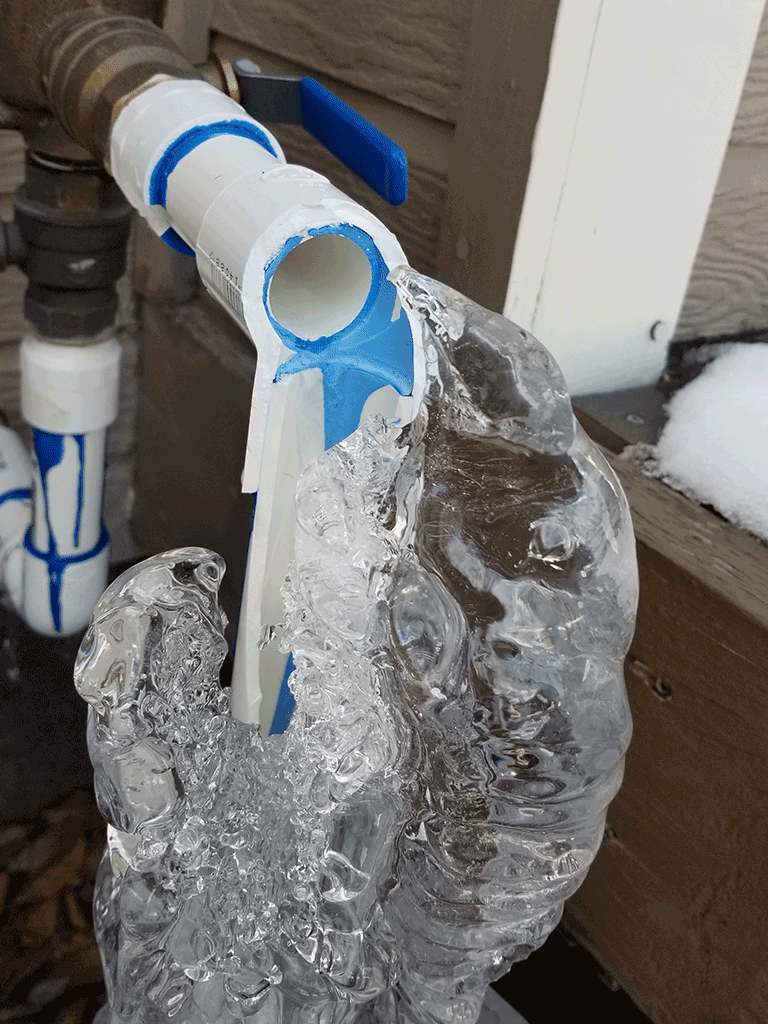We've discovered this article relating to Preventing and dealing with frozen pipes below on the internet and concluded it made perfect sense to discuss it with you on this page.

Winter can damage your pipes, particularly by freezing pipelines. Right here's exactly how to avoid it from happening and what to do if it does.
Intro
As temperatures drop, the risk of frozen pipes boosts, potentially causing expensive repair services and water damages. Comprehending exactly how to stop frozen pipelines is essential for house owners in cold climates.
Recognizing Frozen Pipes
What creates pipes to freeze?
Pipes ice up when exposed to temperatures listed below 32 ° F (0 ° C) for prolonged periods. As water inside the pipelines freezes, it increases, taxing the pipe wall surfaces and possibly creating them to rupture.
Threats and damages
Icy pipelines can cause water system disruptions, residential or commercial property damages, and pricey repair work. Burst pipes can flooding homes and create substantial architectural damages.
Indicators of Frozen Water Lines
Identifying icy pipelines early can stop them from bursting.
How to recognize frozen pipes
Try to find lowered water circulation from faucets, uncommon odors or noises from pipelines, and noticeable frost on revealed pipes.
Prevention Tips
Protecting vulnerable pipes
Cover pipes in insulation sleeves or make use of heat tape to secure them from freezing temperatures. Focus on pipes in unheated or exterior areas of the home.
Heating methods
Keep interior spaces sufficiently warmed, specifically areas with pipes. Open up cupboard doors to permit warm air to circulate around pipelines under sinks.
Securing Exterior Pipes
Garden tubes and exterior faucets
Disconnect and drain pipes yard pipes prior to winter season. Set up frost-proof faucets or cover outdoor taps with protected caps.
What to Do If Your Pipes Freeze
Immediate activities to take
If you think frozen pipelines, keep faucets open to eliminate stress as the ice melts. Utilize a hairdryer or towels soaked in hot water to thaw pipelines slowly.
Long-Term Solutions
Structural adjustments
Consider rerouting pipelines away from exterior walls or unheated locations. Include extra insulation to attics, cellars, and crawl spaces.
Updating insulation
Invest in top notch insulation for pipelines, attics, and wall surfaces. Proper insulation assists preserve constant temperatures and reduces the risk of icy pipelines.
Conclusion
Preventing frozen pipelines needs aggressive procedures and quick feedbacks. By understanding the reasons, indications, and preventive measures, homeowners can secure their plumbing throughout winter.
Helpful Tips to Prevent Frozen Pipes this Winter
UNDERSTANDING THE BASICS: WHY PIPES FREEZE AND WHY IT’S A PROBLEM
Water freezing inside pipes is common during the winter months, but understanding why pipes freeze, and the potential problems it can cause is crucial in preventing such incidents. This section will delve into the basics of why pipes freeze and the associated problems that may arise.
THE SCIENCE BEHIND FROZEN PIPES
When water reaches freezing temperatures, it undergoes a physical transformation and solidifies into ice. This expansion of water as it freezes is the primary reason pipes can burst. As the water inside the pipe freezes, it expands, creating immense pressure on the walls. If the pressure becomes too great, the pipe can crack or rupture, leading to leaks and water damage.
FACTORS THAT CONTRIBUTE TO PIPE FREEZING
Low Temperatures: Extremely cold weather, especially below freezing, increases the risk of pipes freezing. Uninsulated or Poorly Insulated Pipes: Pipes located in unheated areas, such as basements, crawl spaces, or attics, are more prone to freezing. Insufficient insulation or lack of insulation altogether exacerbates the problem. Exterior Wall Exposure: Pipes running along exterior walls are susceptible to freezing as they encounter colder temperatures outside. Lack of Heating or Temperature Regulation: Inadequate heating or inconsistent temperature control in your home can contribute to frozen pipes. PROBLEMS CAUSED BY FROZEN PIPES
- Pipe Bursting: As mentioned earlier, the expansion of water as it freezes can cause pipes to burst, resulting in significant water damage.
- Water Damage: When pipes burst, it can lead to flooding and water damage to your property, including walls, ceilings, flooring, and personal belongings.
- Structural Damage: Prolonged exposure to water from burst pipes can compromise the structural integrity of your home, leading to costly repairs.
- Mold and Mildew Growth: Excess moisture from water damage can create a favorable environment for mold and mildew growth, posing health risks to occupants.
- Disrupted Water Supply: Frozen pipes can also result in a complete or partial loss of water supply until the issue is resolved.
WHY CERTAIN PIPES ARE MORE PRONE TO FREEZING
- Location: Pipes located in unheated or poorly insulated areas, such as basements, crawl spaces, attics, or exterior walls, are at higher risk of freezing.
- Exterior Pipes: Outdoor pipes, such as those used for irrigation or exposed plumbing, are particularly vulnerable to freezing as they are directly exposed to the elements.
- Supply Lines: Pipes that carry water from the main water supply into your home, including the main water line, are critical to protect as freezing in these lines can affect your entire plumbing system.
- Underground Pipes: Pipes buried underground, such as those connected to sprinkler systems or outdoor faucets, can be susceptible to freezing if not properly insulated.
https://busybusy.com/blog/helpful-tips-to-prevent-frozen-pipes-this-winter/
:strip_icc()/snow-outdoor-faucet-pipes-4af65d1e5e904fb1aa7bf74071fe5d89.jpg)
Hopefully you enjoyed reading our part on Winter Plumbing Precautions: Preventing Frozen Pipes. Thanks for taking time to read through our content. Loved our content? Please share it. Help another person locate it. Thanks a lot for taking the time to read it.
Explore Now
 Dylan and Cole Sprouse Then & Now!
Dylan and Cole Sprouse Then & Now! Hallie Eisenberg Then & Now!
Hallie Eisenberg Then & Now! Val Kilmer Then & Now!
Val Kilmer Then & Now! Kenan Thompson Then & Now!
Kenan Thompson Then & Now! Earvin Johnson III Then & Now!
Earvin Johnson III Then & Now!